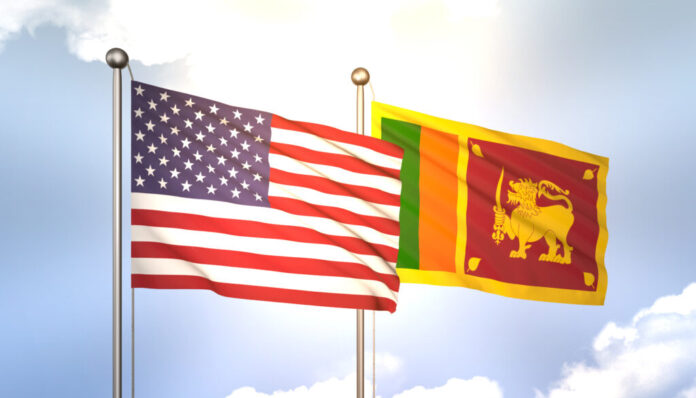By: Staff Writer
November 17, Colombo (LNW): The JVP -led National People’s Power (NPP) government is under intensifying scrutiny after signing yet another undisclosed defence cooperation agreement this time with the United States marking the second or possibly third defence pact the government has quietly concluded since coming to power.
The latest agreement, signed at the Ministry of Defence between U.S. Ambassador Julie Chung, Brigadier General Trenton Gibson of the Montana National Guard, and Sri Lanka’s Defence Secretary Air Vice Marshal Sampath Thuiya Kontha, expands collaboration under the U.S. State Partnership Program (SPP).
While presented as a routine training and capacity-building MoU, what has alarmed political observers and foreign policy analysts is the silence surrounding the deal. No Cabinet-approved public disclosure, no parliamentary briefing, and no release of the text have accompanied the signing mirroring the secrecy surrounding the NPP government’s earlier defence MoUs with India and Japan, both of which were also concluded with minimal public knowledge.
A Pattern of Secretive Defence Diplomacy
Only months earlier, Colombo quietly entered two separate defence cooperation frameworks with India and Japan, each involving training support, maritime security coordination, and technology-sharing. None of these agreements were debated in Parliament or explained to the public beforehand.
Taken together, these back-to-back security pacts across three major Indo-Pacific powers signal a strategic shift in Sri Lanka’s foreign and defence policy—yet one occurring without public mandate or transparency.
For a government that, while in opposition, vehemently mobilized against SOFA, ACSA, MCC, and other foreign security arrangements, the abrupt embrace of multiple defence agreements has left many questioning whether the NPP has abandoned its ideological roots.
Non-Alignment at Risk
Analysts warn that the secrecy and frequency of these deals compromise Sri Lanka’s long-standing non-aligned posture. Entering separate defence cooperation frameworks with the U.S., India, and Japanthree countries deeply embedded in Indo-Pacific strategic competition risks projecting Sri Lanka as taking sides in a region already defined by great-power rivalry.
Both China and India, historically sensitive to external military influence in the Indian Ocean, may interpret Sri Lanka’s actions as a quiet pivot toward foreign security dependence.
The risk is not the agreements themselves, which many countries routinely sign, but the lack of disclosure, which creates suspicion about hidden operational clauses, intelligence-sharing obligations, or structural defence commitments.
Transparency Promises in Tatters
The NPP came to power promising radical transparency, open governance, and public accountability. Yet senior MPs within the coalition admit privately that they had no prior knowledge of any of the three defence MoUs until after they were signed.
Deputy Minister Major General Jayasekara hailed the new U.S. MoU as “an important milestone,” but the government has yet to explain why these agreements signed consecutively with three powerful nations were withheld from public debate.
Credibility Crisis for the NPP
The contradiction between the NPP’s past protests against foreign military agreements and its current pattern of secretive defence diplomacy has triggered the government’s most serious credibility challenge to date.
Unless the full texts of all three agreements are released immediately, the NPP risks being seen as a government that publicly champions sovereignty while privately surrendering transparency.
